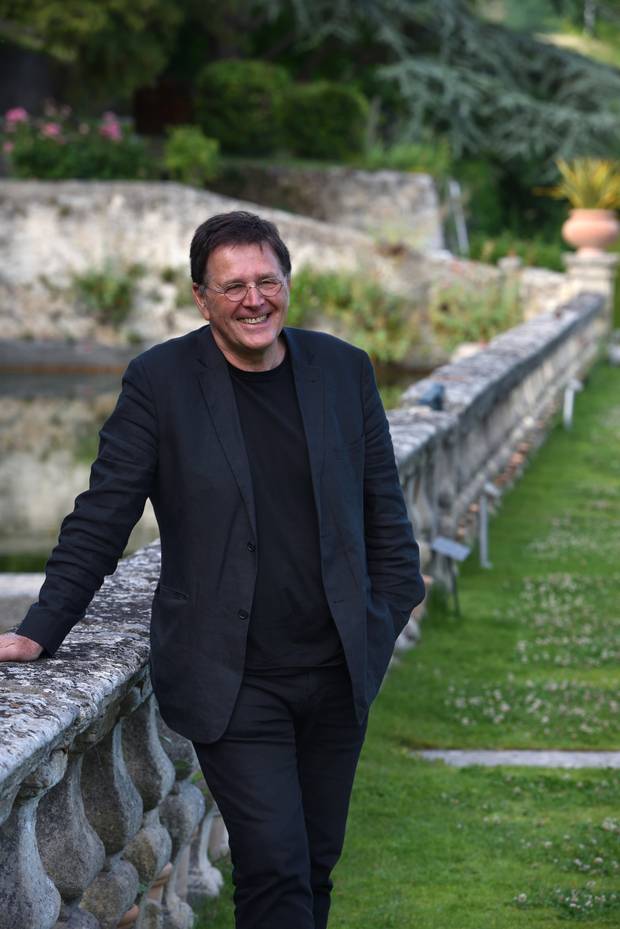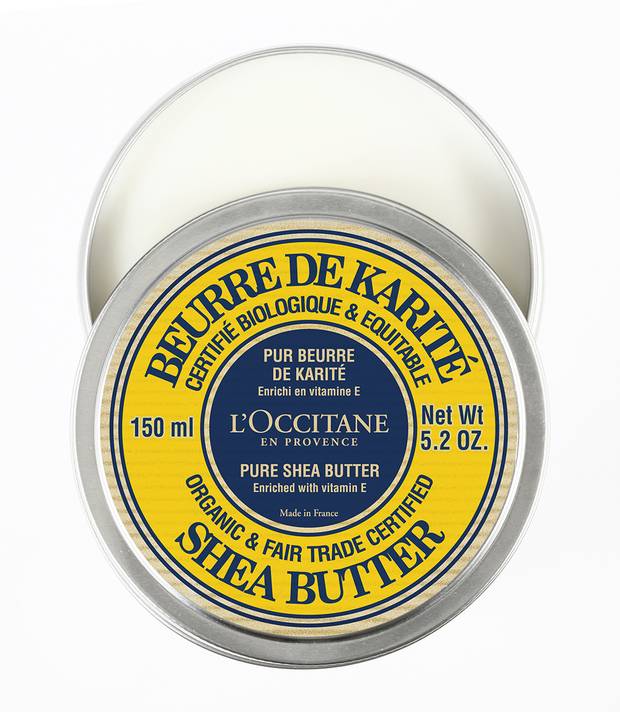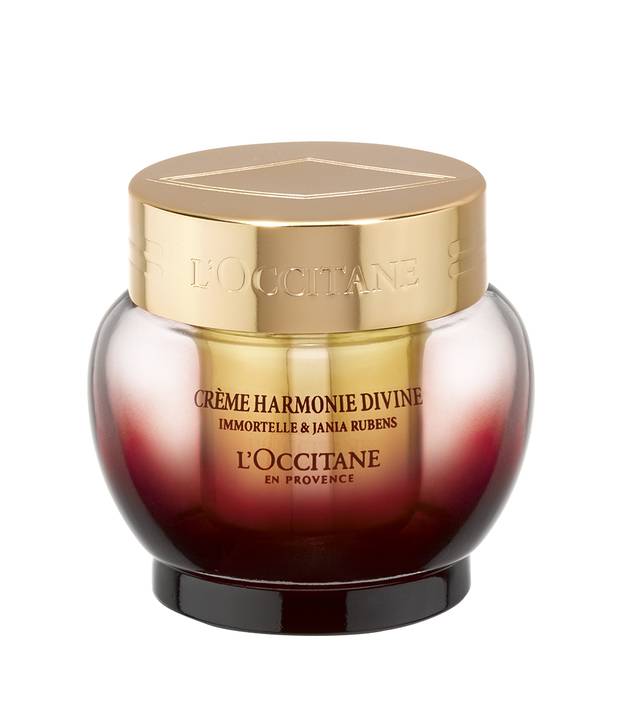With so many new organic beauty brands now on offer, it's interesting to reflect on one of the originals. L'Occitane was born out of one man's passion for his homeland, France, and its romantic culture. Olivier Baussan, a native of Provence, was 23 when he started experimenting with distilling the region's flora he so loved. Soon, the entrepreneurial literature student began producing essential oils and shampoos from rosemary and lavender, selling his wares at local outdoor markets. Two years later, in 1978, the first L'Occitane boutique opened in the Provençal village of Voix. Baussan then found an abandoned soap factory in another regional village, Manosque, where he used traditional methods to produce a line of vegetable-based soaps. Still based in Manosque to this day, L'Occitane went public in 2010 and now boasts shops in more than 90 countries around the world. I asked the 64-year-old about the evolution of his brand, the passion behind it and L'Occitane's newest skin-care collection.

Olivier Baussan launched a legacy of naturally crafted beauty products in 1976, when he created essential oils and shampoos using ingredients from his hometown in Provence
FX EMERY
Your passion for Provence is palpable, and you've helped ignite a similar passion for your hometown in other places around the world. What is it that inspires you about this magical part of France?
Everything inspires me in that beautiful region! Provence is a name that makes me dream about warm colours, scents, wild landscapes and sunny, quaint villages. The sounds of steps on tiled floors, wooden shelves full of books, long lunches and children's laughter… It is my childhood, the road which led from my parents' farm to my school; it's three kilometres of olfactory pleasure, heightened by the song of the farmers as they harvested lavender in the summer, or while they gathered olives when the first flakes of snow arrived. Provence, for me, is like a world where you can take time to live and enjoy. It definitely has something absolutely magical, and I am so happy I had the chance to share it. However, the person who succeeded in initiating a similar passion throughout the world is more L'Occitane En Provence CEO Reinold Geiger than myself. The shops he designed spread to the world that special feeling of well-being you have when you are in Provence – something warm and peaceful.
You launched your brand in the 1970s, at a time of great idealism and optimism. While there's been a return to '70s in terms of fashion and style, the world is a very different place now. Still, all your products continue to feel so relevant. Why do you think that is?
I think the reason why those products continue to feel relevant, as you say, is just because they are absolutely simple, and they answer very simple needs which do not change with the trends. When I founded L'Occitane in 1976, my dream was to give people the pleasure of smelling and using natural products, essential oils distilled in a simple way, and this authenticity has remained one of the brand's key pillars today.
You were inspired to start L'Occitane almost by accident. Tell me about that old contraption you found along the highway as young man that essentially was the start of it all.
It all began with a rusted old still I bought from a farmer at an antique market for the price of its copper. That's true, it was completely by chance – a kind of "love at first sight" thing. Once I bought it, I started to grow anxious, a little afraid of that responsibility. I wondered whether I would be able to make it work. It's an impressive piece of machinery. All I had were some basic technical guidelines, but I did make it work, and I distilled my first plant, rosemary. When I saw the first few drops of essential oil dripping out of the tap mixed in the water, it was marvellous and I knew something special was happening.
And how readily accepted was this new enterprise to those around you? Were there some naysayers at first, or did you always feel you had the support you needed?
L'Occitane was raising questions when I founded it, and I think I was considered quite a crazy man, an idealist. Indeed, in the '70s, it was the glory days of chemical products and I was one of the only people to truly believe in natural cosmetics. I wanted to make a change on my own little level. And people loved it. It was amazing. All the packaging was very simple. People would come to us with their already used pack and fill it again to avoid consuming too much. I also created a formula that generated great enthusiasm for the consumers. They could come to the shops, fill their bottles themselves, and stick the label on it. The early days of recycling and do-it-yourself!
There has been such a strong movement in the beauty business in recent years to get back to basics using pure, natural ingredients in products. But this was a notion you were hip to from the beginning. Why do you suppose you saw through that particular lens?
It wasn't actually a gamble on the future of the cosmetics market, not at all. It was just a personal will to develop natural products and to buy the ingredients directly from the growers. And many people were like me, they wanted to celebrate the beauty of nature – they were sick and tired of having their bathrooms filled with the artificial odours of mass soaps and artificial essences. It was perhaps not something we saw or felt was a beginning, but rather, something we created ourselves.
The competition in the skin-care business these days is wild, but that hasn't stopped you from recently launching a brand new skin-care collection. What is so revolutionary about this new line?
First, it's revolutionary because it is the first time the brand is launching a product with an ingredient from the sea: Jania rubens algae. It is not coming from just any sea either, it is coming from the crystal-clear sea of Corsica, and it is revolutionary for the cosmetic market as well. It is the first time Immortelle essential oil and Jania rubens algae have been combined in a cosmetic formula. It took L'Occitane many years of research and tests to find the perfect anti-aging synergy, combining this new ingredient with the Immortelle flower. Both are able to benefit from the same protected ecosystem in Corsica and are connected by the vital force of the sun. These two factors contribute to the concentration of their precious molecules. The sun boosts the concentration of active ingredients in Immortelle, and it promotes the production of calcite by Jania rubens, facilitating the regeneration process.


With stores in over 90 countries, his brand has worked with women in Burkina Faso to create its iconic shea butter products, and launched a new luxe skin-care line made with a unique type of algae sourced off the coast of Corsica.
You were also among the first – if not the first – to bring the wonders of shea butter into the mainstream market. Tell me about that first trip to Burkina Faso, and why you felt this was something that women around the world were ready to embrace?
I was at an airport when I heard about shea butter for the first time. As I learned the story of this sacred tree, its nuts harvested exclusively by women, I decided to change the destination and take the next flight to Ouagadougou. It is an incredible ingredient, I could see it immediately. It was the Burkinabé women who taught me all the properties of the nuts. I couldn't guess the world would love it, but I knew it was great and I wanted to use some for L'Occitane, not only for the product itself but also for the people of Burkina Faso. At first, just a dozen of women were involved, and now there are over 10, 000 women working with L'Occitane. Shea butter has become a cult ingredient for L'Occitane, and this partnership has helped pave the way for the economic emancipation of the women of Burkina Faso.
Another one of your important causes is fighting blindness and supporting the visually impaired. Why that particular cause?
We decided to fight avoidable blindness because, as a sensorial brand, we believe that we have to fight for one of our most important senses, sight. Since 1997, L'Occitane has written the names of products in braille on the packaging wherever possible, in order to make it accessible to everyone and raise awareness about visual impairment.
You're so passionate about philanthropy and making a difference in peoples' lives. Why has giving back become so integral to who you are and to what L'Occitane represents?
The L'Occitane Group has always been sensitive to others and we fight for many causes. It is more than a philosophy though, it is a commitment. The [L'Occitane] Foundation was created in 2006, after 30 years of support to charity projects. The aim was to give further impact to the brand's early commitments, which were there since the beginning and at the core of the brand.
This interview has been condensed and edited.